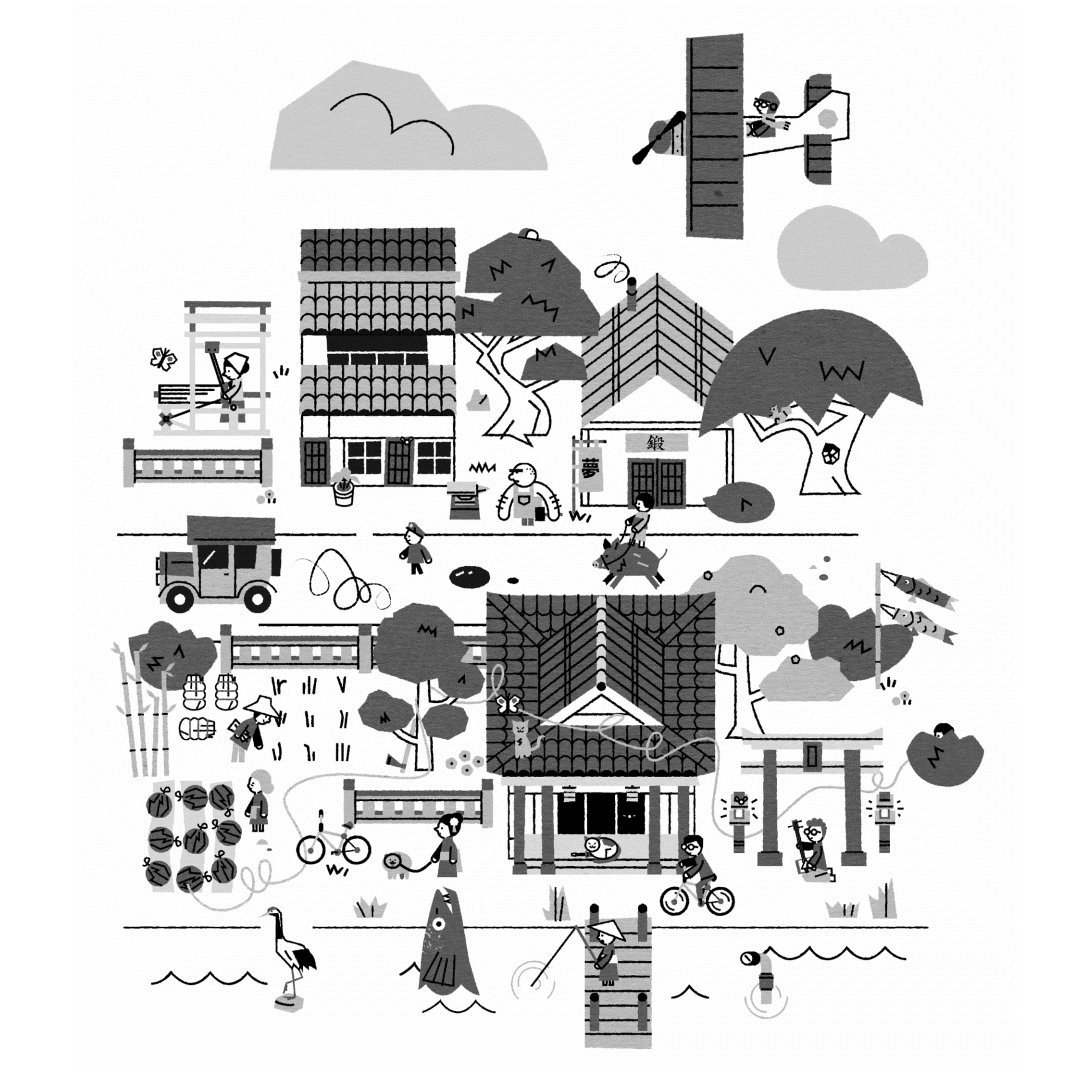Oyaji - A Casual and Dreamlike Hidden Object Game
At CARNEVALE, we specialize in creating imaginative digital experiences that connect people with technology in unexpected ways. Oyaji is a passion project born from that spirit—a casual mobile game that invites players into the eccentric dreams of their sleeping boss. The result is an offbeat, addictive hidden object adventure that blends humor, history, and playful challenge.

The Concept
In Oyaji, players awaken inside the dreams of their bizarre and unpredictable boss. Trapped in his subconscious, they must navigate surreal dreamscapes, uncovering scattered items and strange memories to escape. The goal? Explore, find everything, and piece together tales and rumors surrounding the legendary Soichiro Honda.
We aimed to design a game that was on-trend, highly accessible, and endlessly fun. Whether you're a seasoned gamer or completely new to mobile games, Oyaji welcomes you into a quirky, story-driven experience that unfolds at your own pace.

Research & Ideation
Our journey began with a deep dive into mobile gaming trends, dissecting what makes a casual game successful—from uniqueness and playability to story engagement and repeatability. We knew we didn’t want to compete on difficulty. Instead, our focus was clear: delight the player.
We explored a variety of gameplay models and landed on the hidden object genre for its simplicity, narrative potential, and broad appeal. From there, we developed multiple concepts, combining story and gameplay until the dream-like structure of Oyaji emerged.

Illustration and Visual Design
Since the game is entirely illustration-based, our visual exploration was crucial. We experimented with different styles and techniques before landing on a hand-drawn greyscale aesthetic. This choice brought a timeless and accessible look to the game, adding charm and personality while keeping the visuals focused on the objects and storytelling.
We paid special attention to:
• Viewpoint: Creating depth and discovery within each scene
• Texture & Contrast: Ensuring visual clarity without sacrificing detail
• Tone: Infusing each level with eccentricity and subtle humor

Gameplay & User Experience
Accessibility was at the heart of our UI/UX design. We developed a clean, intuitive interface that supports pick-up-and-play sessions while leaving room to scale the game with new features and levels.
Each of the five levels features:
• Custom hand-drawn illustrations
• Original music compositions to reflect the unique mood of each dream
• Layered storytelling with nods to Soichiro Honda’s life and lore
• Hidden easter eggs for players to discover
Music and Audio Design
Each level of Oyaji features its own original music track, carefully composed to match the tone, energy, and personality of the dream world it represents. The soundtrack was crafted to feel lighthearted, nostalgic, and stylistically in tune with the game’s hand-drawn, greyscale illustrations. Music was composed in Logic Pro, blending both physical and digital instruments to create a sound that feels playful yet grounded. These subtle audio cues help bring the dreamscapes to life, guiding the player’s experience and enhancing the emotional rhythm of the game.

Development & Deployment
In addition to designing and illustrating Oyaji, CARNEVALE also handled all aspects of coding, development, and deployment to both the App Store and Google Play. Built in Unity, Oyaji exemplifies our philosophy that great games don’t need to be complex—they just need to be smart, simple, and fun. One of Unity’s biggest strengths is its ability to deploy across iOS and Android with minimal hassle, which makes it a perfect tool for rapid development and creative experimentation. We've used Unity for years because of this versatility, and Oyaji became a showcase of how quickly and effectively you can build something delightful with the right tools and process.
The entire development cycle took less than a month. The idea began as a vague prompt with minimal budget—but constraint often breeds creativity. Inspired by simple, well-designed games like Hidden Folks, A Little to the Left, and Wario Ware, we zeroed in on a core concept that would be development-light but content-rich.
Our workflow leaned heavily into Figma for layout and design. Using the Figma Converter for Unity by D.A Assets, we were able to streamline our pipeline: designers created entire levels in Figma, and developers imported them into Unity with minimal overhead. This process let us focus our time and effort on polish rather than setup.
Key development highlights included:
• Simple Unity Scripting: progress saving, settings, transitions, audio, and localization.
• Transition System: Built in-house using DoTween for smooth, stylized level changes.
• Audio Design: Spatial sound and zoom-sensitive audio levels added richness and depth.
• Settings & State Management: Scriptable Object Architecture Pattern (SOAP) helped us manage states elegantly, cutting dev time significantly.
• Localization: Unity’s built-in localization tools made supporting Japanese seamless. We even used live Google Sheet integrations with auto-translation during development to stay agile.
• Accessibility: High-contrast visuals, simple settings, and clear copy made Oyaji more approachable to a broad range of players.
Finally, we handled full deployment to the App Store and Google Play, ensuring Oyaji was fully optimized and ready for the public. This project is a reminder that scope, smart tooling, and a well-aligned team can lead to fast, effective development—even on a tight timeline.

Marketing & Promotion
To support the game’s launch, we created a suite of promotional assets including:
• Posters and collectible pins
• Social media content and teasers
• Digital assets for app store listings
These materials helped us generate early buzz and build an audience around the quirky personality of Oyaji.
Oyaji is available now for free on both the App Store and Google Play. Whether you’re a casual gamer, a fan of hidden object games, or just curious to explore the wild dreams of a mysterious boss, we’d love for you to give it a try. Download it, play it, and let us know what you think! Your feedback helps us make better experiences—and we’re always listening.
